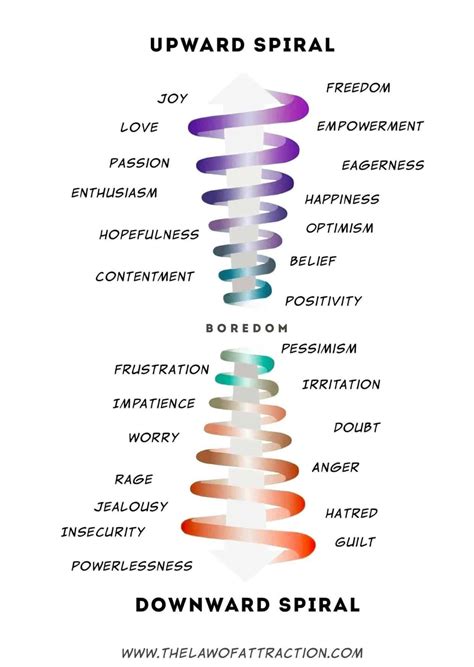“I feel good…”

Those familiar words, penned by James Brown, have reverberated through generations, encapsulating the elusive yet profound pursuit of emotional well-being. In a world rife with challenges and uncertainties, finding ways to elevate our emotional states has become more crucial than ever.
The Symphony of Emotions
Emotions are the intricate tapestry of our human experience. They can uplift us to euphoric heights or plunge us into depths of despair. Understanding the nuances of our emotions is essential for navigating life’s complexities.
According to the American Psychological Association, emotions are “complex reactions to internal and external stimuli.” They involve physiological changes, cognitive interpretations, and expressive behaviors.
Physiological Changes: Emotions trigger a cascade of physiological responses, such as changes in heart rate, blood pressure, and hormone levels.
Cognitive Interpretations: We make sense of emotions through our thoughts and beliefs. The way we perceive a situation can significantly influence our emotional reaction.
Expressive Behaviors: Emotions are often expressed through nonverbal cues, such as facial expressions, body language, and vocal tone.
The Healing Power of Emotional Well-being
Numerous studies have established a compelling link between emotional well-being and overall health and longevity.
- Improved Physical Health: Individuals with high levels of emotional well-being experience lower rates of chronic diseases, such as heart disease, stroke, and diabetes.
- Enhanced Mental Health: Emotional well-being is associated with reduced symptoms of anxiety, depression, and stress.
- Stronger Immune System: Studies have shown that positive emotions can boost the immune system’s response to antigens.
- Increased Longevity: Research suggests that people with high levels of emotional well-being live longer and healthier lives.
The Art of Emotional Cultivation
Cultivating emotional well-being is an ongoing journey, a practice that requires intention and effort. Here are some evidence-based strategies to nurture your emotional health:
Mindful Awareness
“Mindfulness is the practice of intentionally directing our attention to the present moment, non-judgmentally and without attachment.” – Jon Kabat-Zinn
Mindfulness practices, such as meditation and yoga, bring us into the present moment, allowing us to observe our emotions with clarity and compassion.
Positive Psychology
Positive psychology focuses on the study and promotion of human strengths, well-being, and happiness. It offers research-backed interventions to cultivate positive emotions and build resilience.
Gratitude
Expressing gratitude has been shown to increase happiness, reduce stress, and improve physical health. Regularly practicing gratitude can shift our focus towards the positive aspects of our lives.
Social Connections
Strong social connections are vital for emotional well-being. Surround yourself with supportive family, friends, and community members who uplift you and provide a sense of belonging.
Self-Care
Self-care is not selfish; it’s essential for maintaining our emotional health. Engage in activities that nourish your physical, mental, and emotional well-being, such as exercise, healthy nutrition, and hobbies you enjoy.
Cognitive Reframing
Our thoughts have a profound impact on our emotions. Practice reframing negative thoughts into more positive and constructive ones.
Seek Professional Help
If you’re struggling with persistent emotional challenges, don’t hesitate to seek professional help. A therapist can provide guidance, support, and evidence-based treatments to address emotional distress.
The Ripple Effects of Emotional Well-being
The pursuit of emotional well-being is not only a personal endeavor but also a ripple effect that benefits our communities and society at large.
Increased Productivity
Emotionally well-balanced individuals tend to be more productive and focused at work or school.
Enhanced Relationships
Healthy emotional well-being fosters stronger and more fulfilling relationships with others.
Reduced Crime and Violence
Studies have shown a correlation between emotional instability and increased aggression and violence. Promoting emotional well-being can contribute to safer communities.
Improved Community Health
Healthy communities are built on the foundation of emotionally well individuals. Emotional well-being initiatives can reduce healthcare costs and improve overall quality of life.
A More Compassionate Society
Emotional well-being fosters empathy and compassion towards others. A society where individuals are emotionally healthy is a society where kindness and care prevail.
The Return on Investment
Investing in emotional well-being is one of the wisest investments we can make for ourselves and for our future. The benefits are far-reaching, enriching our lives and the lives of those around us.
By embracing the strategies outlined above, we can cultivate emotional well-being as a fundamental pillar of our lives. Let us all strive to create a society where everyone feels the power of positive emotions and the transformative impact of emotional well-being.
Conclusion
The pursuit of emotional well-being is a journey, not a destination. It requires ongoing effort, but the rewards are immeasurable. As we invest in our emotional health, we unlock a wealth of benefits that touch every aspect of our lives. Let’s embrace the transformative power of emotional well-being and create a world where we truly feel good.
